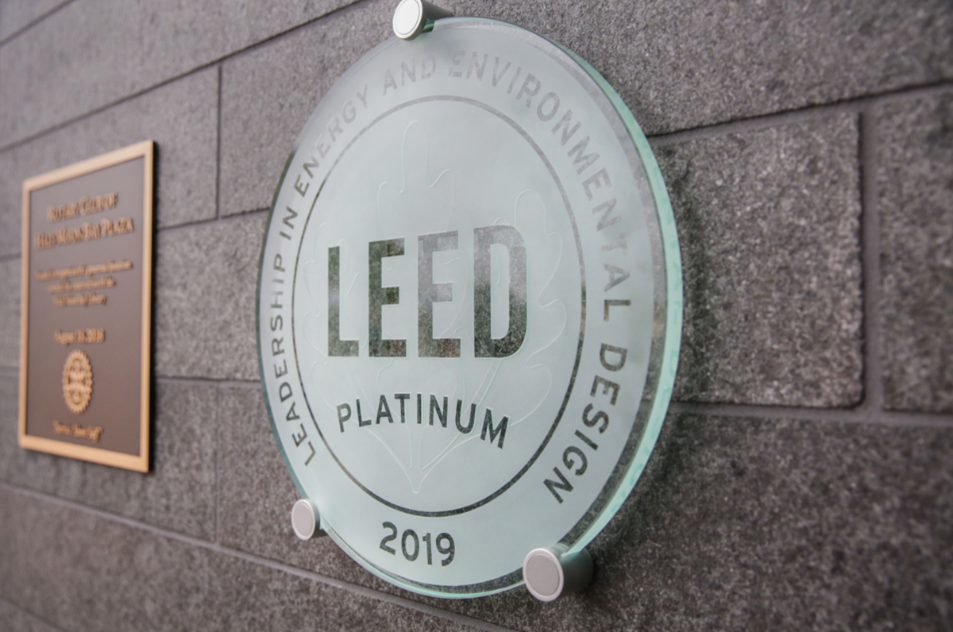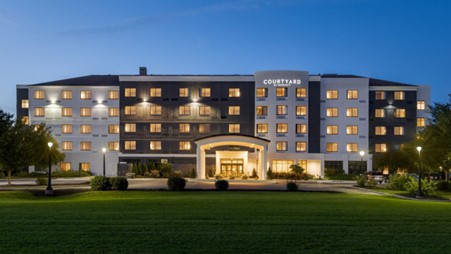Sustainable Hotel Practices: How Eco-friendly Hotels Drive Profit and Value
In recent years, sustainability has taken center stage in commercial real estate (CRE). As increasing numbers of green buildings spring up across the globe, we’ve moved long past the point where “sustainable” is just another buzzword. Instead, investors and occupiers alike now expect the buildings they back to come with strong green credentials and a commitment to eco-conscious practices. And there are few sectors where this shift has been more apparent than in hospitality real estate.
As eco-minded travelers seek out more sustainable options for their vacations and business trips, the push for green building in hospitality has never been stronger — or more important to the bottom line.
Sustainable hotel practices and eco-savvy guests
Earlier this year, Booking.com released their 2024 Sustainable Travel Report, the latest in their annual series examining sustainability trends. Among the highlights from that report were two facts that, at first glance, seem to be at odds:
- Firstly, 83% of the 31,000 travelers surveyed stated that sustainable travel practices are important to them.
- Secondly, a growing number of travelers report a sense of disillusionment (and disinterest) towards making sustainable travel choices.
The report goes into a lot more detail about the reasons for the apparent contradiction, but the cliff notes version is this: Despite the fact that the percentage of people reporting sustainable travel goals has increased in surveys year-over-year, a growing number of travelers are saying they aren’t seeing sustainability in action. In other words, people are looking for clear signs that the choices they’ve made are more sustainable. And they’re having trouble finding them.

For eco-friendly hotels this discrepancy represents a golden opportunity. The real problem here is one of communication. Booking.com’s report shows that travelers do want to act more sustainably but they need to know when they’ve made the right choice.
For hotel operators and developers this becomes a question of marketing. Keep energy-smart credentials and sustainable practices front and center, and your brand or property will quickly become an easy choice for increasingly weary, but well-intentioned, travelers.
Sustainability, by the numbers
If we get down to hard numbers, the case for sustainable hotel practices becomes even stronger. As the latest U.S. Department of Energy “Better Buildings” report shows, some of the biggest gains come from boosting a property’s energy efficiency and decreasing water usage. Especially when those considerations are built into a new development at the start.
Examples from “Better Buildings” show that changes like replacing water heating systems and appliances with energy efficient versions, along with implementing waste-water recycling, can cut water usage by as much as 32%. A figure that for one hotel alone resulted in USD7,000 a month in savings. Similarly, a 323,000-panel solar installation implemented by MGM Resorts International supplies approximately 40% of the power needed across its portfolio of Las Vegas properties.

A natural counter-argument that can be made here is that upgrading facilities and building energy-efficient hotels isn’t cheap. And that retrofitting older buildings can incur especially steep costs, as many of these properties haven’t been designed with future sustainability in mind. But there are other upshots to hospitality going green.
For a start, there’s plenty of evidence that investors are “voting with their wallets,” by prioritizing sustainable projects. That makes green developments and upgrades more likely than other projects to attract eco-minded capital.
Meanwhile, the other elephant in the room is the fact that the hotel industry is increasingly coming under carbon emissions scrutiny. As an industry that produces around 1% of global carbon emissions, current estimates show that hospitality properties have the opportunity to reduce their carbon emissions per room by as much as 66% in 2030. Green practices and upgrades work towards that goal, while also ensuring regulatory compliance and making properties eligible for tax cuts from initiatives like the IRS’s Energy Efficient Commercial Buildings Deduction.
A long-term investment
The key takeaway? As sustainable hotel practices become more the norm than an outlier, going green offers the industry a sure-fire way to realize both short and long-term gains.
Some come in the form of an immediate return-on-investment, like attracting sustainability-minded guests, or cutting energy and water costs. Other rewards come on a longer horizon. For example, staying ahead of an increasingly steep regulatory compliance curve.
Perhaps more importantly, adopting sustainable practices gives hospitality brands a unique value proposition: The chance to position themselves as the most trusted voices in an industry where opinions, and expectations, are rapidly changing.
